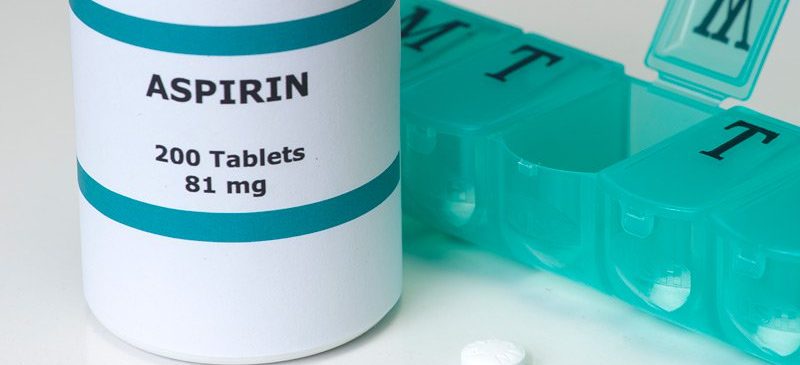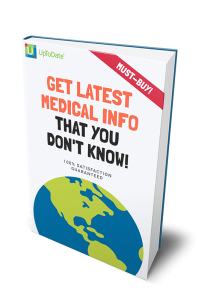Aspirin for Primary Prevention: New Meta-analysis

A new meta-analysis of trials evaluating aspirin for primary prevention of cardiovascular disease has found no overall benefit, with aspirin use associated with a lower risk of cardiovascular events but an increased risk of major bleeding, and no effect of aspirin on cancer risk.
However, there still appears to be some disagreement on how to apply these findings.
“A review of the evidence for use of aspirin in primary prevention was last looked at 5 or 6 years ago but now we have additional data from three new trials published last year — ARRIVE in people at higher CV risk, ASCEND in people with diabetes, and ASPREE in older individuals,” said by lead author of the new meta-analysis, Sean Zheng, BM, BCh, King’s College Hospital, London, United Kingdom.
“This new analysis was done to bring together the total evidence on aspirin in primary prevention of cardiovascular disease now available in a mixed population,” he said.
“We found that aspirin did reduce cardiovascular events by a modest 11%, with a number needed to treat to prevent one event of 265, but it also increased major bleeding, such as serious GI bleed, intracranial bleed or bleed needing hospitalization or transfusion by 43%. That is a number needed to harm of 210,” Zheng reported.
“These numbers needed to treat for benefit and harm are of similar magnitude,” he said. “So there isn’t a clear-cut benefit, and in order to make a decision each patient would have to be considered individually with their own personal view of how they value these benefits and risks. But at the population level, we can say this is not strong enough evidence to recommend use of aspirin routinely.”
The meta-analysis was published online in JAMA yesterday.
Zheng explained that the earlier trials of aspirin for primary prevention tended to include all levels of cardiovascular risk — true population studies — but as these did not show a clear benefit, the later trials have tried to select out higher risk groups.
“But the results are similar across the board — aspirin appears to reduce cardiovascular events but increases bleeding to a similar degree in all groups,” he said. “We can never disengage the benefit from the risk.”
Guidelines Not Consistent
What effect will this latest meta-analysis have on guidelines? Zheng noted that UK and European guidelines generally do not recommend aspirin for primary prevention, but some of the US guidelines still recommend it based on age or cardiovascular risk, and there are a large number of patients in the US still taking aspirin for primary prevention.
“I think the US guidelines should change to not routinely recommending aspirin in primary prevention for any group, and our data should help in that regard,” he said.
In an accompanying editorial, however, Michael Gaziano, MD, Brigham and Women’s Hospital, Boston, Massachusetts, says this is not so clear-cut, pointing out that the cancer benefit of aspirin is not seen until much longer follow-up — and suggesting that there may still be a role for aspirin in some patients for primary prevention.
The new meta-analysis included a total of 13 trials randomizing 164,225 participants with a total of 1,050,511 participant-years of follow-up.
The median age of trial participants was 62 years (range 53-74), 47% were men, 19% had diabetes, and the median baseline risk of the primary cardiovascular outcome (cardiovascular mortality, nonfatal MI and nonfatal stroke) was 9.2% (range 2.6%-15.9%).
Aspirin use was associated with significant reductions in the composite cardiovascular outcome: 57.1 per 10,000 participant-years with aspirin vs 61.4 with no aspirin (hazard ratio [HR] 0.89; number needed to treat 265).
Aspirin use was also associated with an increased risk of major bleeding events, 23.1 per 10,000 participant-years with aspirin vs 16.4 with no aspirin (HR 1.43; number needed to harm, 210).
Aspirin use was associated with reductions in the primary cardiovascular composite outcome and increases in major bleeding risks in both low and high cardiovascular risk populations and in participants with diabetes.
“Compared with aspirin use in patients with established atherosclerotic cardiovascular disease, aspirin use for primary prevention has been controversial,” Zheng and colleagues write. “This uncertainty has been reflected in contradictory guideline recommendations. The current study demonstrates that when considering the totality of evidence, cardiovascular benefits associated with aspirin were modest and equally balanced by major bleeding events.”
They note that co-prescription of aspirin with a proton pump inhibitor (PPI) may limit the risk of significant gastrointestinal bleeding and, therefore, shift the risk-benefit ratio toward an overall benefit of aspirin use for primary prevention; however, the use of PPIs was inconsistently reported in the studies included in this analysis. Furthermore, this strategy has not been adequately tested in randomized trials and is of uncertain cost effectiveness, they add.
No Effect on Cancer Risk?
Another interesting finding from the meta-analysis was a neutral effect of aspirin on cancer — both cancer death and new cancer diagnosis. “From our data there doesn’t appear to be any benefit of aspirin on cancer risk,” Zheng said.
However, in his editorial, Gaziano says the finding of no overall association between aspirin use and incident cancer or cancer mortality is “consistent with previous studies that did not detect an effect of aspirin on reduction in risk of total cancer until much longer follow-up.”
Gaziano describes the new meta-analysis as “well conducted,” and says it shows that the best estimates for the effects of aspirin on cardiovascular events and bleeding have not materially changed after the results of the three new trials published in 2018.
He notes that the similarity of the number needed to treat and the number needed to harm has been the rationale for some guidelines that recommend not using aspirin for primary prevention but rather waiting to initiate aspirin until there is manifest cardiovascular disease (secondary prevention), when the separation between benefit and risk is clearer.
On the other hand, Gaziano points out that the US Preventive Services Task Force (USPSTF) takes into consideration the longer-term potential effects of aspirin in reducing the risk of colorectal cancer, and recommends aspirin for primary prevention based on a patient’s risk of future vascular disease, bleeding events, and longevity, as well as personal preferences.
This new meta-analysis “demonstrates that the estimates for aspirin preventing vascular events and for increasing bleeding risk that support this USPSTF approach are largely unchanged after the addition of the new trials,” Gaziano states.
He cautions, however, that assessing cardiovascular risk is complicated, with risk calculators tending to overestimate risk for populations in which risk is declining, such as in the United States and Europe. In addition, risk will change if patients change their lifestyles, and when applying these results to an individual patient, clinicians must consider other interventions such as smoking cessation and control of blood pressure and lipid levels, to lower risk.
“In places of the world in which cardiovascular risk is rising or where other preventive strategies, such as statins, are less available, aspirin as a low-cost intervention may have a more important role,” he writes.
“Aspirin remains an important medication for acute management of vascular events; for use after certain procedures; for secondary prevention; and, after careful selection of the right patients, for primary prevention,” Gaziano concludes.
The authors of the meta-analysis have disclosed no relevant financial relationships. Gaziano reports serving on the executive committee of the ARRIVE trial and serving as a consultant and receiving honoraria for speaking for Bayer.
JAMA. Published online January 22, 2019. Abstract, Editorial.



